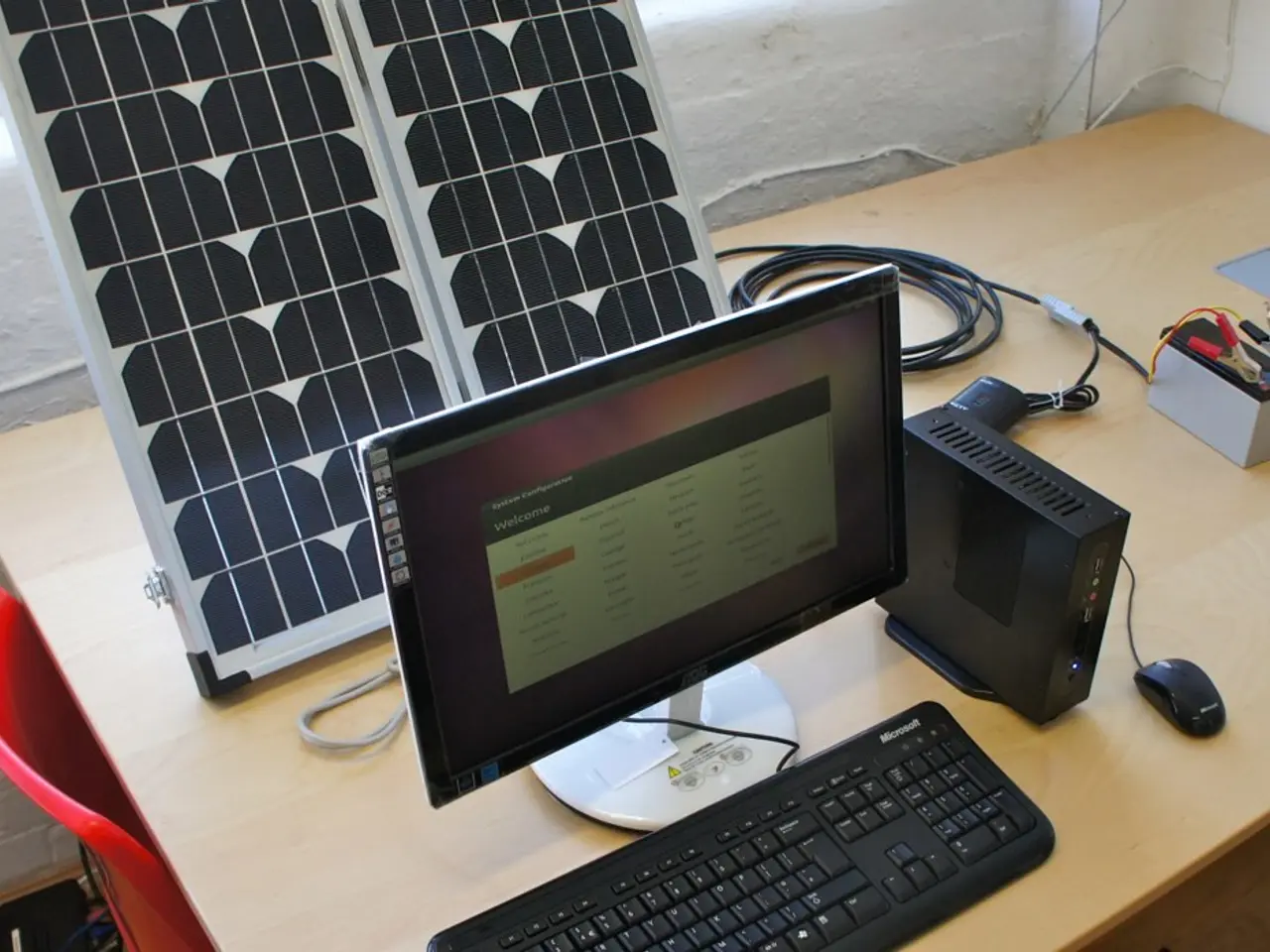Is a battery-equipped solar electrical outlet a viable option?
In the ongoing quest for renewable energy solutions, solar systems have emerged as a popular choice for homeowners and businesses alike. But what about battery storage? When is it worth the investment, and how can you determine the best option for your needs?
Firstly, it's essential to understand that any kilowatt-hours fed into the grid without compensation are ultimately consumed by others, thereby increasing the share of solar energy in the grid. This means that even if you're not using all the electricity your solar panels generate, you're still contributing to a greener future.
For those interested in maximising their solar energy output, the online solar simulator from HTW Berlin (University of Applied Sciences) could be the solution. This tool allows users to estimate the worth of a solar system combined with a storage unit, taking into account factors such as annual electricity consumption, the orientation of modules, shading, costs of the solar system and the storage unit.
If your primary goal is minimal effort and a small economic gain, a solar system without storage may still be recommended. However, for those seeking to increase energy independence, a battery storage system becomes a sensible investment. This is particularly true when the storage costs are lower than buying electricity from the grid (around 37 cents/kWh as of 2025), and when the system is designed to avoid expensive high-voltage storage and complicated registration, favouring low-voltage hybrid off-grid systems with grid support.
Additional factors such as blackout protection, compatibility with the solar array, and maximising self-use of generated power also make battery storage worthwhile. By storing excess solar power during the day for use at night, you can ensure a consistent power supply and reduce your reliance on the grid.
In conclusion, the online solar simulator from HTW Berlin offers a valuable tool for those considering solar power and battery storage. By comparing different variants under actual conditions, you can make an informed decision about the best option for your energy needs. Whether you're looking for a small economic gain or increased energy independence, solar power and battery storage provide a promising path towards a greener future.
Read also:
- Transforming Digital Inventories in the Food Industry: A Comprehensive Guide for Food Businesses
- Munich Airport Unveils Its New Electrical Vehicle Charging Parksite
- Clean Energy Facilities by Constellation Offer Close-to-Impeccable Summer Stability, Reinforced by $7 Billion in Capital Infusions Over the Past 10 Years
- Vehicle electrification and bidirectional charging technologies could potentially reduce EU energy expenses by a staggering €22 billion annually by the year 2040.






